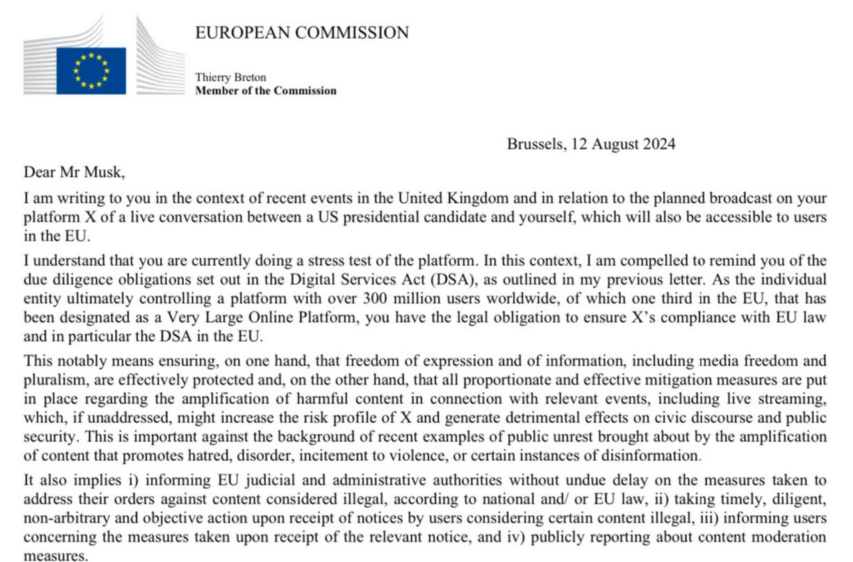Tasting History with Max Miller
Published May 7, 2024Sauerkraut soup served with German black bread, or schwarzbrot
City/Region: Germany
Time Period: 1915The food aboard a German U-boat could get really monotonous, especially after the first ten days or so, when all of the best and freshest ingredients would have gone bad. This simple soup uses ingredients that would have been available on board, and comes from a German cookbook from WWI. There are actually several variations of this soup in the cookbook, the only difference being swapping out the sauerkraut for other ingredients like pickles, cabbage, or beets.
You need to like sauerkraut in order to enjoy this soup, as there isn’t anything else going on to contribute other flavors. I highly recommend eating it with some schwarzbrot, or black bread. It balances the sourness of the soup and the two go together very nicely.
Sauerkrautsuppe
The fat and flour are whisked and the water is slowly added. When the soup has simmered, the sauerkraut is added. Salt and vinegar are added to the soup and seasoned.
— Kriegskochbuch, 1915.
August 24, 2024
Eating on a German U-Boat in WW1
QotD: How did the Romans themselves view the change from Republic to Empire?
The Romans themselves had a lot of thoughts about the collapse of the republic. First, we should note that they were aware that something was going very wrong and we have a fair bit of evidence that at least some Romans were trying to figure out how to fix it. Sulla’s reforms (enforced at the point of a much-used sword) in 82-80 BC were an effort to fix what he saw as the progressive destabilization of the the republic going back to the tribunate of Tiberius Gracchus (133). Sulla’s solutions were hamfisted though – he assumed that if he annihilated the opposing faction, crippled the tribunate and strengthened the Senate that this would resolve all of the problems. Cicero likewise considered reforms during the 50s BCE which come out in his De re publica and De legibus. The 50s were a time of political tumult in Rome while at the same time the last years of the decade must have been loomed over by the knowledge of an impending crisis to come in 49. Cicero was never in a position to enact his idealized republic.
Overall the various Romans who contemplated reform were in a way hindered by the tendency of Roman elites to think in terms of the virtue of individuals rather than the tendency of systems. You can see this very clearly in the writings of Sallust – another Roman writing with considerable concern as the republic comes apart – who places the fault on the collapse of Roman morals rather than on any systemic problem.
We also get a sense of these feelings from the literature that emerges after Augustus takes power in 31, and here there is a lot of complexity. There is quite a lot of praise for Augustus of course – it would have been profoundly unwise to do otherwise – but also quite a lot of deep discomfort with the recent past, revealed in places like Livy’s deeply morally compromised legends of the founding of Rome or the sharp moral ambiguity in the final books of Vergil’s Aeneid. On the other hand, some of the praise for Augustus seems to have been genuine. There was clearly an awful lot of exhaustion after so many years of disruption and civil war and so a general openness to Augustus’ “restored republic”. Still, some Romans were clearly bothered by the collapse of the republic even much later; Lucan’s Pharsalia (65 AD) casts Pompey and Cato as heroes and views Caesar far more grimly.
We have less evidence for feeling in the provinces, but of course for many provincials, little would have changed. Few of Augustus’ changes would have done much to change much for people living in the provinces, whose taxes, laws and lives remained the same. They were clearly aware of what was going on and among the elite there was clearly a scramble to try to get on the right side of whoever was going to win; being on the wrong side of the eventual winner could be a very dangerous place to be. But for most regular provincials, the collapse of the Roman Republic only mattered if some rogue Roman general’s army happened to march through their part of the world.
Bret Devereaux, “Referenda ad Senatum: August 6, 2021: Feelings at the Fall of the Republic, Ancient and Medieval Living Standards, and Zombies!”, A Collection of Unmitigated Pedantry, 2021-08-06.
August 23, 2024
The EU’s bureaucratic aristocrats agree “Spaceship Man Bad!”
As eugyppius explains, the “Eurocrats are having a very big sad” and Spaceship Man Bad isn’t deferring to their autocratic whims:
The Brussels Eurocrats around Emmanuel Macron are having a big sad about Twitter right now. They fear the platform fuels “the amplification of hateful content” and “disinformation”, which are multisyllabic ways of saying that there is too much unapproved and uncurated discourse on the site. You cannot just have people taking to their keyboards to type, like and retweet whatever they want. You especially cannot have that in Europe, where we suffer under the immensely liberal and democratic Digital Services Act, which mandates all manner of social media censorship to protect traditional European freedoms, like freedom of expression.
Twitter is a useful website; I use it to try out ideas and also for news-gathering purposes. As much as I’ve benefitted from the platform, however, I find the establishment derangement surrounding it to be extremely bizarre. There is little chance that Elon Musk’s relaxed moderation regime will lead to fascism, and still less chance that heavy censorship there will do anything about tHe ExtREmE RiGhT. The real reason that Twitter bothers establishment pundits and politicians, is its inherently confrontational nature. Our smug and self-satisfied oligarchs don’t like getting dragged and dunked on by the rabble. They want to tweet their lunacies without anonymous anime-themed accounts showing them up for the fools that they are, and they are very, extremely, fulminously enraged that Musk won’t do anything to improve their user experience.
One of these dissatisfied users is Thierry Breton, the Macron-appointed Commissioner for the Internal Market of the European Union. As everybody knows, on 12 August, Breton posted a letter to Musk ahead of Musk’s Twitter discussion with Donald Trump, to remind the American entrepreneur of his obligations to censor content. Breton has long been a thorn in the side of his EU colleagues, who regard him as a shallow self-promoter, and his game rapidly backfired. The next day, the EU Commission clarified that “The timing and the wording of the letter were neither co-ordinated nor agreed with the president nor with the [commissioners].” The American House Judiciary Committee then added to Breton’s humiliation by condemning his “threats” and his “attempt to intimidate individuals or entities engaged in political speech in the United States”. Musk also had some choice words for the EU Commissioner:
The Macronistes don’t care that they are wildly unpopular and that everybody hates them. They just don’t want to hear about it. They could simply delete their Twitter accounts, but people would still be saying mean things about them on the internet somewhere. They’d have to lie awake in bed at night, staring at the ceiling and stewing about it. Better by far would be to delete Twitter itself, or at least to block access to the platform across all 27 EU member states.
August 22, 2024
“Say my pronouns, peasant!”
Andrew Doyle doubts that the push for bespoke personal pronouns will have any lasting impact on the language and how it is used despite all the political capital invested to coerce people to adopt them:
For all the demands of activists that “they” and “them” should be normalised as singular pronouns, very few members of the public have adapted their speech patterns accordingly. Even when the print media started following this odd new craze after Sam Smith declared himself to be “non-binary” in September 2019, the trend simply didn’t catch on.
This is hardly surprising. For one thing, most of the articles that adhere to this creed end up being both syntactically and stylistically incoherent. Take the following excerpt from a review of Judith Butler’s latest book in The Atlantic:
In essence, Butler accuses gender-crits of “phantasmatic” anxieties. They dismiss, with that invocation of a “phantasm”, apprehension about the presence of trans women in women’s single-sex spaces…
At first glance, “they” could appear to be referring to the “gender-crits”, but in this case it refers to Butler. A reader unfamiliar with the subject will inevitably find this confusing. Throughout the article, one is forced to reset one’s reading instincts – cultivated through a lifetime of universally-shared linguistic conventions – and even though the meaning eventually becomes clear, the prose is irredeemably maladroit. In other words, those who accept these new rules must first surrender their capacity to write well.
Of course, we all know that “they” is commonly used in the singular sense in cases of unknown identity. So we might say “Someone has left their car keys here” because we cannot be sure of the sex of the stranger in question. This causes no confusion at all because the sentence automatically conveys the uncertainty. Such colloquial exceptions aside, “they” is simply not used as a singular pronoun among the general population.
While identitarian activists love to dismiss Shakespeare as an irrelevant dead white male, they are happy to invoke him to support their attempts to impose their own modifications to the English language. In almost all articles on the singular “they”, one will find a reference somewhere to Shakespeare. “For decades, transgender rights advocates have noted that literary giants Emily Dickinson, William Shakespeare, William Wordsworth, and Geoffrey Chaucer all used singular they in their writing”, states one writer. “Shakespeare used the singular they, and so should you”, claims another. In the Washington Post, a professor of English writes that “Shakespeare and Austen both used singular “they” … just as many English speakers do now”.
It’s difficult to see how this argument is in any way compelling. Nobody is claiming that language does not evolve. The point is rather that the singular “they” has not caught on in modern usage, in spite of activists’ demands that it should. Are gender identity ideologues really urging us to adopt sixteenth-century language in the name of progress? I have yet to see any of them favouring “thou” as a familiar form of address. They tend to prefer “y’all”, and if this was ever used by Shakespeare I must have missed it.
QotD: The changing role of the Medieval housewife in England
The transition may also have driven broader cultural shifts. In 1523, Fitzherbert’s Boke of Husbandrie gave a list of a housewife’s jobs (“What warkes a wyfe shulde do in generall”) that included the household’s cooking, cleaning, laundry, and childcare, all of which are typically part of modern housewifery, but also milking cows, taking grain to the miller, malting barley, making butter and cheese, raising pigs and poultry, gardening, growing hemp and flax and then spinning it, weaving, winnowing grain, making hay, cutting grain, selling her produce at market — and, as necessary, helping her husband to fill the dungcart, plow the fields, or load hay. Roles were still highly gendered, but compared to eighteenth and nineteenth century household manuals this is a remarkable amount of time spent out of the house, and the difference holds even when you compare the work hired maids were doing in both periods. Around the time of the advent of coal, though, our descriptions of women’s work increasingly portray it as contained within the walls of the home — or, at most, in the dairy or the poultry yard. Of course social transformations are never monocausal, and the increasing specialization and mechanization that moved some production out of the household probably nudged things along, but Goodman suggests that “the additional demands of running a coal-fired household might have also helped push the idea that a woman’s place is within the home”. After all, if your cleaning takes twice as long, there’s simply less time available for all that agricultural labor and small-scale commerce.
Jane Psmith, “REVIEW: The Domestic Revolution by Ruth Goodman”, Mr. and Mrs. Psmith’s Bookshelf, 2023-05-22.
August 21, 2024
MG08: The Devil’s Paintbrush
Forgotten Weapons
Published May 6, 2024The MG08 was the German Army standard Maxim gun in World War One. The Germany Navy adopted the Maxim first in 1894, followed by the Army in 1899, then a new pattern in 1901, and finally the MG08 in 1908. This was actually a somewhat old-fashioned pattern of Maxim when it was adopted, as the Germans chose to use the 1889-style lock, which was neither headspace-adjustable nor field-strippable. Their decision was based on the idea that they could produce locked to perfect interchangeable headspace, and field stripping was not really necessary — and they were not wrong in these assumptions. MG08 guns were issued with two spare locks in each sled mount, and that handled any broken parts that might occasionally happen. During the war, about 106,000 MG08s were built by two main factories, the Spandau Arsenal and the DWM company. This remained the standard German Army heavy machine gun until the adoption of the MG34.
(more…)
August 20, 2024
German magazine Der Spiegel warns about “The Secret Hitlers” of the far right who threaten western civilization
The spectre of Hitlerian fascism looms over the western world once again, but Der Spiegel won’t take this threat lying down:

“How Fascism Begins”: The present cover of Der Spiegel, depicting Björn Höcke, Marine le Pen and Donald Trump as the new fascists. Establishment German hysteria about “the right” is now achieving an intensity to rival American hysteria about race during the Summer of Floyd.
Hitler is not like other mortals; he may not really be dead, and his spirit is likely to return at any moment. Perhaps it already has. This is why our foremost news magazine, Der Spiegel, chose this image to head their cover story on “The Secret Hitlers“, a bizarre opus of current-year political lunacy penned by Lothar Gorris and Tobias Rapp.
“Is fascism returning?” Gorris and Rapp want to know. “Or is it already here, in the form of [Donald] Trump, [Viktor] Orbán [or Björn] Höcke? And if so, could it disappear again?” What follows, they explain, is “an attempt to identify evil”.
This is the kind of insanity that comes over you when you elevate establishment political ideology into a civic religion. You reduce the entire project of state politics to a dubious exercise in piety, where the aim is not to achieve good outcomes or develop pragmatic solutions, but to engage in moral peacockery. For the Gorrises and the Rapps of our discourse, the greatest problem facing the liberal faithful of the Federal Republic is not mass migration, deindustrialisation, soon-to-be-insolvent pension programmes or the overblown state entitlement system, oh no. It is finding and rooting out mythological political demons and preventing the second coming of the secular antichrist.
Gorris and Rapp (for convenience, I will refer to these feeble-minded men henceforth as Grapp) open with an extended anecdote about a 2016 board game called Secret Hitler.
The setting is the year 1932, the Reichstag in Berlin. The players are divided into two groups: Fascists and Democrats, with the Democrats making up the majority, which sounds familiar. The Fascists have a decisive advantage at the start: they know who the other Fascists are, which also reflects the truth in the history books. The Democrats don’t have this information; every other player could be friend or foe. The fascists win the game if they get six laws through the Reichstag or if Hitler is elected Chancellor. To win, the Democrats must pass five laws or expose and kill Hitler.
The basic premise of the game is that everyone pretends to be democrats. In truth, the real democrats would only have to trust each other and the fascists wouldn’t stand a chance. But it’s not that simple, because sometimes the democrats have to vote in favour of a fascist law for lack of options and therefore fall under suspicion of fascism. Which is exactly what the fascists want.
One realisation: there is no guarantee of the right strategy that will ultimately see the good guys win and the bad guys lose. One wrong decision that feels right, and Hitler is Reich Chancellor. It was all chance, just as there was no inevitability in 1933. The other realisation: it can be fun to be a fascist.
The cryptofascist myth will never cease to amaze me. Absolutely everybody in 1933 knew who “the fascists” were. The ones in Italy literally called themselves fascists, which was one way to identify them. The ones in Germany openly derided liberalism and dreamed of a nationalist revolution that would put an end to the hated bourgeois democracy of the Weimar Republic. Hitler was a national politician who wrote and spoke openly of his aims. Secret Hitler in no way “reflects the truth in the history books”. It is a deformed fantasy about modern politics, which reflects nothing so much as the burning demand for and the vanishing supply of actual Nazis to hyperventilate about.
Now it is true that a lot of erstwhile liberals went over to National Socialism after the Nazis seized power, but these were not the secret fascists of Grappian fever dreams. The were just followers, as are a great many of the self-professed liberals active today. Were communists or illiberal nationalists to take over tomorrow, millions of people would line up behind the new political ideology like the sheep that they are, and I suspect that Grapp would be right at the head of that line.
Because our crack fascist identifiers suffer from a crushing lack of self-awareness, they declare that “relapsing into fascism is the primal fear of modern democratic societies”. Such a relapse, they explain, “long sounded hysterical and unimaginable”, but “now it seems serious and real”.
You’re the Top! A History of the Top Hat
HatHistorian
Published Nov 21, 2021A short history of one of the most recognizable and formal hats of our time: the top hat!
Version française ici:
• Le top du top: l’histoire du Haut-de-…With thanks to Norman Caruso for advice on how to get me started on youtube. Please check out his channel
The first top hat belonged to my great grandfather and is the better part of a century old.
The collapsible top hat comes from from Delmonico Hatter https://www.delmonicohatter.com/Title sequence designed by Alexandre Mahler
am.design@live.comThis video was done for entertainment and educational purposes. No copyright infringement of any sort was intended.
August 19, 2024
Bret Devereaux on Nathan Rosenstein’s Rome at War (2004)
Although Dr. Devereaux is taking a bit of time away from the more typical blogging topics he usually covers on A Collection of Unmitigated Pedantry, he still discusses books related to his area of specialty:
For this week’s book recommendation, I want to recommend N. Rosenstein, Rome at War: Farms, Families and Death in the Middle Republic (2004). This is something of a variation from my normal recommendations, so I want to lead with a necessary caveat: this book is not a light or easy read. It was written for specialists and expects the reader to do some work to fully understand its arguments. That said, it isn’t written in impenetrable “academese” – indeed, the ideas here are very concrete, dealing with food production, family formation, mortality and military service. But they’re also fairly technical and Rosenstein doesn’t always stop to recap what he has said and draw fully the conclusions he has reached and so a bit of that work is left to the reader.
That said, this is probably in the top ten or so books that have shaped me as a scholar and influenced my own thinking – as attentive readers can no doubt recall seeing this book show up a lot in my footnotes and citations. And much like another book I’ve recommended, Landers, The Field and the Forge: Population, Production and Power in the Pre-Industrial West (2003), this is the sort of book that moves you beyond the generalizations about ancient societies you might get in a more general treatment (“low productivity, high mortality, youth-shifted age profile, etc.”) down to the actual evidence and methods we have to estimate and understand that.
Fundamentally, Rome at War is an exercise in “modeling” – creating (fairly simple) statistical models to simulate things for which we do not have vast amounts of hard data, but for which we can more or less estimate. For instance, we do not have the complete financial records for a statistically significant sample of Roman small farmers; indeed, we do not have such for any Roman small farmers. So instead, Rosenstein begins with some evidence-informed estimates about typical family size and construction and combines them with some equally evidence-informed estimates about the productivity of ancient farms and their size and then “simulates” that household. That sort of approach informs the entire book.
Fundamentally, Rosenstein is seeking to examine the causes of a key Roman political event: the agrarian land-reform program of Tiberius Gracchus in 133, but the road he takes getting there is equally interesting. He begins by demonstrating that based on what we know the issue with the structure of agriculture in Roman Italy was not, strictly speaking “low productivity” so much as inefficient labor allocation (a note you will have seen me come back to a lot): farms too small for the families – as units of labor – which farmed them. That is a very interesting observation generally, but his point in reaching it is to show that this is why Roman can conscript these fellows so aggressively: this is mostly surplus labor so pulling it out of the countryside does not undermine these households (usually). But that pulls a major pillar – that heavy Roman conscription undermined small freeholders in Italy in the Second Century – out of the traditional reading of the land reforms.
Instead, Rosenstein then moves on to modeling Roman military mortality, arguing that, based on what we know, the real problem is that Rome spends the second century winning a lot. As a result, lots of young men who normally might have died in war – certainly in the massive wars of the third century (Pyrrhic and Punic) – survived their military service, but remained surplus to the labor needs of the countryside and thus a strain on their small households. These fellows then started to accumulate. Meanwhile, the nature of the Roman census (self-reported on the honor system) and late second century Roman military service (often unprofitable and dangerous in Spain, but not with the sort of massive armies of the previous centuries which might cause demographically significant losses) meant that more Romans might have been dodging the draft by under-reporting in the census. Which leads to his conclusion: when Tiberius Gracchus looks out, he sees both large numbers of landless Romans accumulating in Rome (and angry) and also falling census rolls for the Roman smallholder class and assumes that the Roman peasantry is being economically devastated by expanding slave estates and his solution is land reform. But what is actually happening is population growth combined with falling census registration, which in turn explains why the land reform program doesn’t produce nearly as much change as you’d expect, despite being more or less implemented.
Those conclusions remain both important and contested. What I think will be more valuable for most readers is instead the path Rosenstein takes to reach them, which walks through so much of the nuts-and-bolts of Roman life: marriage patterns, childbearing patterns, agricultural productivity, military service rates, mortality rates and so on. These are, invariably, estimates built on estimates of estimates and so exist with fairly large “error bars” and uncertainty, but they are, for the most part, the best the evidence will support and serve to put meat on the bones of those standard generalizing descriptions of ancient society.
Evolution of WW2 German Tank Destroyers
The Tank Museum
Published May 3, 2024 19 productsUsed extensively by the German army of World War Two, the “tank destroyer” was developed to counter the increasing dominance of the tank on the battlefield.
Germany would field a massive 18 different types of tank destroyer in World War Two – compared with the 7 or 8 different types used by US, British and Commonwealth forces. One of these in particular, Sturmgeschütz III, would destroy more tanks than any other AFV in the entire conflict.
In this video we look at the development, strengths and weaknesses of German tank destroyers: from the 17 tonne Hetzer to the massive 70 tonne Jagdtiger — the heaviest tracked vehicle of the War.
00:00 | Introduction
00:59 | The First Tank Destroyers
04:14 | Avoiding Close Combat
06:59 | Jagdpanther
12:05 | Jagdtiger
15:31 | Hetzer
18:01 | Stug III
22:51 | ConclusionThis video features archive footage courtesy of British Pathé.
#tankmuseum #jagdpanther #stugiii #hetzer #jagdtiger
August 18, 2024
Hirohito Announces Surrender – War Continues – WW2 – Week 312 – August 17, 1945
World War Two
Published 17 Aug 2024Hirohito broadcasts Japan’s surrender to the world- despite an attempted to coup to prevent it from happening, and much of the world celebrates, but the war isn’t really over. The Soviets are busy invading Manchuria, and there’s revolution in Vietnam and Indonesia.
00:00 Intro
00:22 Recap
00:49 Attempted Coup In Japan
04:12 Hirohito Surrenders
08:54 Japanese Surrender In China
12:05 Soviets In Manchuria
17:52 Revolution In Vietnam
20:33 Summary
21:07 Conclusion
(more…)
A view of the near future – “What if calling someone stupid was illegal?”
Christopher Gage suspects that Lionel Shriver’s new book Mania didn’t require a lot of deep thinking about possible future trends, just a few glances at the headlines in British newspapers would provide all the inspiration necessary:
Lionel Shriver’s novel, Mania, asks “What if calling someone stupid was illegal?”
Set in an alternate timeline eerily flirtatious with our own, Mania depicts a world in which intelligence and competence, those oppressive agents of the modern bête noire — contrast — provoke outraged mobs.
The Mental Parity Movement demands a Khmer-Rouge-style Year Zero. To suggest the existence of differing abilities and competencies is to be “brain-vain”. In this final “great civil rights fight”, stupidity is euphemised as “alternative processing”. The mob cancels Frasier for brain vanity. After regulations prevent Pfizer from hiring qualified scientists, a toxic vaccine lays waste to millions.
The protagonist, a free-thinking academic named Pearson, cancels herself after she adds Dostoevsky’s The Idiot to her class syllabus. But the book is not the offending item. The word “idiot” is illegal. So too, is the “D-Word”. Pearson falls foul of social services after calling her seven-year-old daughter “dumb”. Her daughter grasses her up for this most heinous offence. For her crimes, Pearson endures a mandatory course entitled “Cerebral Acceptance and Semantic Sensitivity”.
Akin to our culture, mass neurosis devours that of Mania. The citizens scour the earth for evidence of the gravest offence: cognitive bigotry.
The Mental Parity Movement even renames “sage” — stripping the haughty herb of its sapiosexual swagger.
Mania imagines a world in which mediocrity is brilliance and where platitude is profundity. I suspect Shriver wasted little time on research. Turning on one’s television furnishes a commonplace book with a bottomless wealth of material.
This week, Harry and Meghan embarked on an unroyal tour of Colombia. On the agenda was a summit on misinformation and online harm. At this “responsible digital future” fandango, the former soap actress and the former royal spermatozoa relayed their fears. Essentially, hordes of toothless oiks with Wi-Fi often say nasty things online.
On stage, Harry adopted the pose of the modern soothsayer. His tieless open collar oozed Sicilian ease.
Speaking in Adverb English, Harry avoided anything as threatening or as harmful as a declarative sentence. Harry talks as if everything is a question as not to arouse predators. The Prince droned on, auditioning the Californication of his mother tongue. The same mother tongue Harry’s ancestors spread around the globe via what some may deign to be less than inclusive methods.
How can I put this in Mania-approved euphemism? Harry is minimally exceptional. Harry is to intelligent thought what lead pipes are to potable water.
.30-06 M1918 American Chauchat – Doughboys Go to France
Forgotten Weapons
Published May 4, 2024When the US entered World War One, the country had a grand total of 1,453 machine guns, split between four different models. This was not a useful inventory to equip even a single division headed for France, and so the US had to look to France for automatic weapons. In June 1917 Springfield Armory tested a French CSRG Chauchat automatic rifle, and found it good enough to inquire about making an American version chambered for the .30-06 cartridge. This happened quickly, and after testing in August 1917, a batch of 25,000 was ordered. Of these, 18,000 were delivered and they were used to arm several divisions of American troops on the Continent.
Unfortunately, the American Chauchat was beset by extraction problems. These have today be traced to incorrectly cut chambers, which were slightly too short and caused stuck cases when the guns got hot. It is unclear exactly what caused the problem, but the result was that most of the guns were restricted to training use (as best we can tell today), and exchanged for French 8mm Chauchats when units deployed to the front. Today, American Chauchats are extremely rare, but also very much underappreciated for their role as significant American WWI small arms.
(more…)








